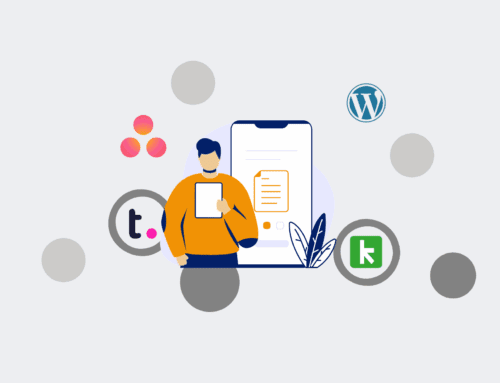The Ethical Dilemmas of AI in Candidate Screening: What HR Needs to Know
The promise of Artificial Intelligence in candidate screening is compelling: faster processing, reduced bias, and more objective evaluations. Yet, as HR leaders increasingly adopt AI tools, a complex web of ethical dilemmas emerges, demanding careful navigation. This isn’t merely about technological adoption; it’s about safeguarding fairness, ensuring transparency, and maintaining the human element in a fundamentally human process. For 4Spot Consulting, integrating AI isn’t just about efficiency—it’s about ethical governance and strategic implementation that respects both the candidate and the organization’s values.
The Illusion of Objectivity: Unmasking Algorithmic Bias
One of AI’s most touted benefits is its potential to eliminate human bias. However, AI systems learn from historical data, which often contains embedded human biases. If past hiring data disproportionately favored certain demographics, an AI trained on that data will likely perpetuate those patterns, even amplifying them. This leads to what’s known as “algorithmic bias.” HR professionals must understand that AI isn’t inherently unbiased; it merely reflects the biases present in its training data. This can manifest in subtle ways, such as resume screening tools downranking candidates with non-traditional educational backgrounds or voice analysis tools inadvertently penalizing certain accents or speech patterns. The ethical dilemma here is profound: are we unknowingly replacing human bias with an opaque, harder-to-detect algorithmic bias?
Addressing this requires proactive measures. HR teams need to scrutinize the datasets used to train AI screening tools, demanding transparency from vendors. Furthermore, ongoing audits of AI performance, comparing outcomes against diversity metrics and hiring goals, are essential. This isn’t a one-time fix but a continuous process of calibration and refinement, much like the strategic systems 4Spot Consulting helps implement for robust and reliable operations.
Transparency and Explainability: Demanding Clarity from the Black Box
Imagine a candidate being rejected for a role and having no idea why. This “black box” problem is a significant ethical concern in AI-powered screening. Many AI algorithms are so complex that even their developers struggle to explain precisely how certain decisions are made. This lack of transparency undermines trust, not just with candidates but also with internal stakeholders. Candidates deserve to understand the criteria by which they are being evaluated, and hiring managers need to trust that the AI’s recommendations are justifiable and fair.
HR departments must push for explainable AI (XAI) solutions. This means prioritizing tools that can articulate the factors contributing to a candidate’s score or recommendation. While full transparency might not always be possible given proprietary algorithms, vendors should be able to provide insights into key predictive features and how they are weighted. Without this, HR risks alienating top talent and facing legal challenges related to discriminatory practices. Organizations need to understand that the adoption of AI comes with the responsibility to ensure its decisions are intelligible and defensible.
Privacy Concerns: Safeguarding Candidate Data
AI screening tools often collect vast amounts of data—from resumes and cover letters to video interviews, psychometric assessments, and even social media profiles. The ethical implications for candidate privacy are immense. How is this data stored? Who has access to it? How long is it retained? What are the cybersecurity measures in place to prevent breaches?
HR must navigate a complex landscape of data protection regulations, such as GDPR and CCPA, which are constantly evolving to address AI’s impact. Ethical guidelines demand informed consent from candidates regarding data collection and usage. Organizations must clearly communicate their data handling practices and ensure that AI tools are configured to comply with privacy laws. Beyond legal compliance, it’s about building and maintaining trust. A data breach or misuse of personal information can severely damage an employer’s brand and reputation, costing far more than any efficiency gains. This is where a strategic approach to data governance, a cornerstone of 4Spot Consulting’s OpsMesh framework, becomes indispensable.
The Human Touch: When Automation Goes Too Far
While AI excels at pattern recognition and data processing, it often falls short in evaluating nuanced human qualities like emotional intelligence, cultural fit, or genuine passion. Over-reliance on AI can strip away the essential human element of hiring, leading to a mechanistic process that overlooks promising candidates who don’t fit a predetermined algorithmic mold. The ethical question here is: what aspects of candidate evaluation should always remain within human purview?
The goal should not be to replace human recruiters entirely but to augment their capabilities. AI can efficiently handle high-volume tasks like initial screening and resume parsing, freeing up HR professionals to focus on deeper interviews, relationship building, and strategic talent acquisition. Implementing a hybrid approach—where AI provides data-driven insights, but humans make the final decisions based on qualitative assessments—is crucial. This ensures that the hiring process remains fair, empathetic, and ultimately, effective in identifying the best talent for an organization’s unique culture and needs.
Establishing Ethical AI Frameworks in HR
To proactively address these dilemmas, HR departments must work with leadership to establish robust ethical AI frameworks. This involves creating clear policies on AI usage in screening, defining accountability for algorithmic decisions, and implementing regular ethical reviews of AI systems. Training for HR teams on AI literacy, bias detection, and data privacy is paramount. Engaging with legal counsel to understand compliance requirements and potential liabilities is also critical.
The journey with AI in HR is not about avoiding the technology but about deploying it thoughtfully and responsibly. By focusing on transparency, fairness, privacy, and maintaining the irreplaceable human element, organizations can leverage AI’s power to enhance candidate screening while upholding their ethical responsibilities. Embracing AI requires a strategic, outcomes-focused approach that balances innovation with integrity. Just as 4Spot Consulting designs automation solutions to eliminate human error and drive growth, the right AI strategy in HR must be built on a foundation of trust and ethical governance.
If you would like to read more, we recommend this article: The Future of AI in Business: A Comprehensive Guide to Strategic Implementation and Ethical Governance







